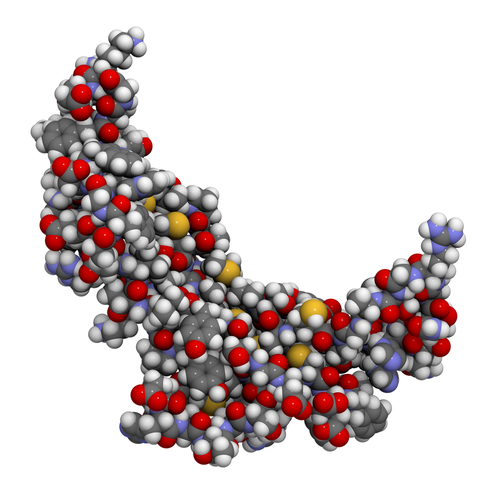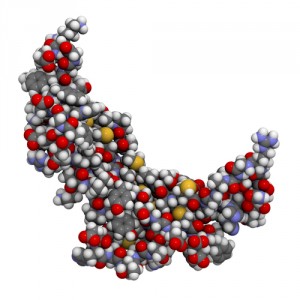Function in Becker Muscular Dystrophy Patients Improved With Follistatin Gene Therapy

 A new study entitled “A Phase I/IIa Follistatin Gene Therapy Trial for Becker Muscular Dystrophy” published in the Molecular Therapy journal, describes the successful results with Follistatin as a therapy for treating dystrophin-deficient muscle diseases.
A new study entitled “A Phase I/IIa Follistatin Gene Therapy Trial for Becker Muscular Dystrophy” published in the Molecular Therapy journal, describes the successful results with Follistatin as a therapy for treating dystrophin-deficient muscle diseases.
Becker muscular dystrophy (BMD) is a type of dystrophin-deficient muscle disease caused by mutations in the dystrophin gene. Dystrophin is a key protein supporting muscle fiber strength and, in its absence, patients experience progressive muscle weakness. Currently, no treatment is available for BMD patients.
In this BMD proof-of-principle clinical trial, the authors administered follistatin (FS), a powerful myostatin antagonist, to six BMD patients by direct bilateral intramuscular quadriceps injections. Myostatin is a potent inhibitor of muscle growth with previous reports linking increased levels of myostatin to muscle atrophy. The authors administered follistatin via adeno-associated virus (AAV). The patients were followed during six months (three patients) up to a year (three patients). All patients significantly improved their six-minute walk distance and in stair climbing tests. These positive outcomes were further supported by histological analyses — reduced muscle fibrosis and central nucleation, and increased muscle hypertrophy.
Jerry Mendell, M.D., Professor at Nation wide Children’s Hospital and trials’ lead author noted, “This is the first gene therapy clinical trial to demonstrate functional improvement in any form of muscular dystrophy, and a major advance for those suffering with muscle disease.”
[adrotate group=”3″]
Brian Kaspar, Ph.D., Associate Professor at Nationwide Children’s Hospital, author and compensated advisor and scientific founder of Milo commented, “Upon evaluating the top line data in this trial, we are particularly impressed with the effects of our gene therapeutic to express follistatin long term, not only for the functional improvement, but also in improving the state of muscle health in the patients analyzed.”
Milo Biotechnology CEO Al Hawkins commented, “This significant and long lasting clinical effect provides the basis for planning pivotal clinical studies beginning in 2015; we want to speed delivery of this important therapy to patients with debilitating muscular dystrophies.”







